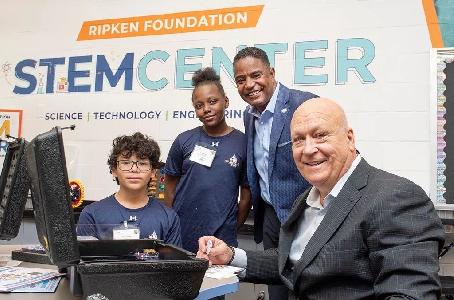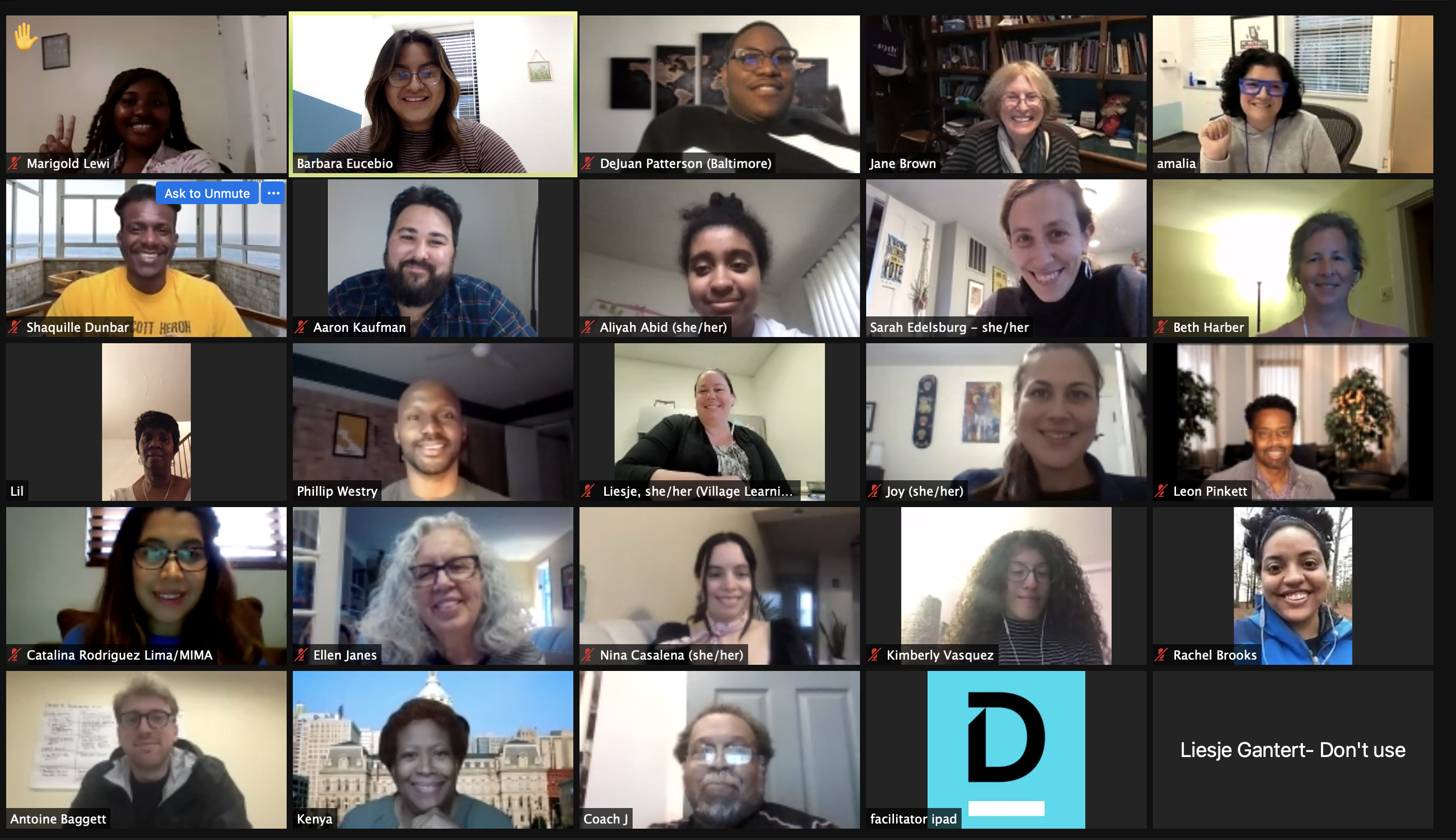A program launched this spring is giving Baltimoreans working on increasing access to the internet and democratizing the tools of an increasingly digital society a chance to learn from national leaders, and the experiences of other cities.
The Robert W. Deutsch Foundation is graduating the first cohort this month of the Digital Equity Leadership Lab, a pilot leadership program that offers training on everything that a person seeking to be an expert on internet advocacy needs to know.
Since the start of the pandemic, the digital divide has become a hot-button topic. In Baltimore City, 40% of households lack wireline broadband — an access issue that was only exacerbated as work and school shifted online, and public access points like libraries closed.
But the battle to change that didn’t start in March of 2020, and the scope of digital equity includes more than just access to internet service. It’s also about jobs, education, housing, and the full gamut of socioeconomic opportunity. So the Charles Village-based Deutsch Foundation set out to provide an educational opportunity for leaders working in communities today to learn about what has already worked.
“This program was designed for residents who either are, or have the capacity to become, digital equity champions, but also could benefit from a space where they could learn from people across the country that have been doing this for a long time,” said amalia deloney, vice president of the Deutsch Foundation.
Working on digital equity over the last 20 years, deloney has observed that residents in Baltimore understand the concept of the digital divide, but don’t grasp the power of the internet in its totality. To provide that broader lens, the five-week program covered topics including laws governing the internet, core concepts about network engineering and the workings of community internet networks, like mesh networks. The group of 25 participants also met with guest speakers, such as former U.S. Federal Communications Commission commissioner Mignon L. Clyburn, and advocates for building a more equitable internet. The group included Baltimoreans from ages 16 to 70, mixing folks that work for the city, church leaders and others from immigration and education advocacy spheres.
Alongside the practical knowledge, participants said they learned what it would take to advance solutions.
“You don’t have to be an expert to be in this work,” said Rachel Brooks, lead organizer of Baltimoreans United in Leadership Development, a grassroots community advocacy group, reflecting on some of the key things she learned from the program. “We need to flip the hierarchy on how decisions are made on our broadband, so the table is set by the users rather than the providers.”
In learning from the experts, Brooks came away empowered by the examples others have set.
“This has been done. This is not pie in the sky,” Brooks said. “It really is about us organizing our power as a collective.”
Among those to learn from are municipalities and community orgs that set up their own broadband networks. There are as many as 560 communities with some form of publicly-backed broadband in the United States, according to the Community Broadband Networks initiative. Some are large, one gigabit municipal service providers, such as in Chattanooga, Tennessee. Others are rural electrical cooperatives that also provide broadband. There’s no one-size-fits-all. Rather, it’ll be up to the leaders and community members to craft an approach that works for them.
“Cities are going to need creative individuals who can step into roles that begin to push cities to think about how broadband is infrastructure, and…the role of technology in communities for transformation,” said deloney. “Not because technology is the solution, but because technology applied towards socioeconomic outcomes and justice solutions can be a tool.”
The foundation plans to relaunch the program in the fall, and is working on a case study with Dr. Colin Rhinesmith to put a program like the Digital Equity Leadership Lab into a national context.
The members of the cohort pictured above are as follows:
- Marigold Lewi, SOMOS
- DeJuan Patterson, The Bridge Advisory Group
- Shaquille Dunbar, City Councilman Zeke Cohen’s office
- Aaron Kaufman, Central Baltimore Partnership
- Aliyah Abid, SOMOS
- Beth Harber, Abell Foundation
- Lil Trotman, Rebuild Johnston Square
- Philip Westry, Greenmount West Neighborhood Association
- Liesie Gantert, Village Learning Place
- Joy Lawson, Baltimoreans for Educational Equity
- Leon Pinkett, Baltimore Arts Realty Corporation
- Catalina Rodriguez Lima, Mayor’s Office of Immigrant Affairs
- Ellen Janes, Central Baltimore Partnership
- Kimberly Vasquez, SOMOS
- Rachel Brooks, BUILD Baltimore
- Antonine Baggett, Maryland MENTOR
- Kenya Asli, BCIT
- Coach Jon Randall, Rebuild Johnston Square
Join the conversation!
Find news, events, jobs and people who share your interests on Technical.ly's open community Slack

Baltimore daily roundup: The city's new esports lab; a conference in Wilmington; GBC reports $4B of economic activity

Baltimore daily roundup: Find your next coworking space; sea turtle legislation; Dali raided and sued

Baltimore daily roundup: Johns Hopkins dedicates The Pava Center; Q1's VC outlook; Cal Ripken inaugurates youth STEM center


